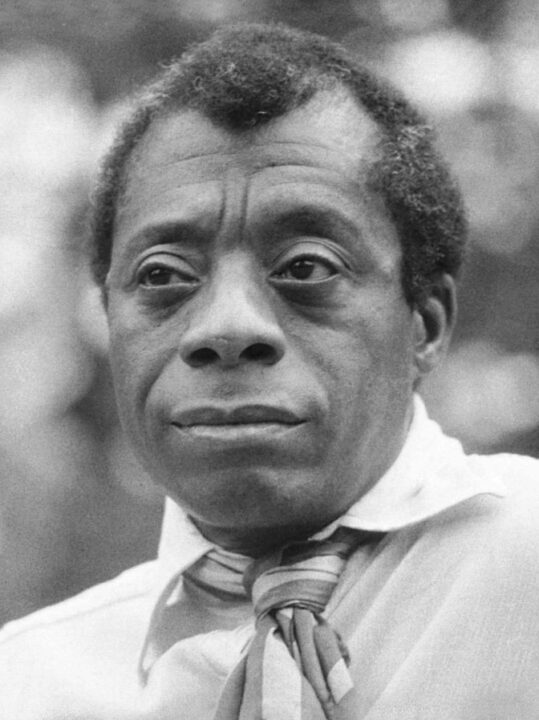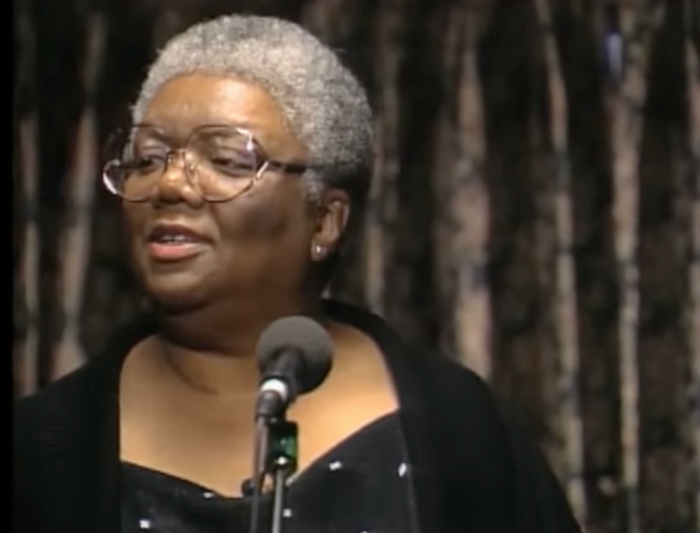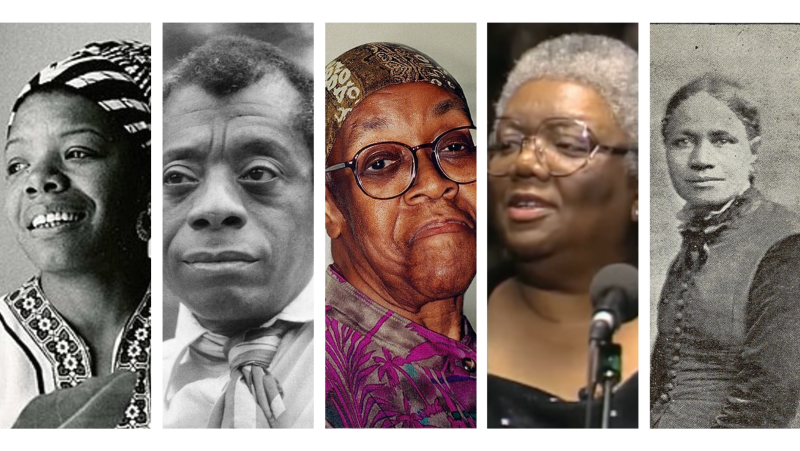Individual image sources below
“A poet’s work is to name the unnameable, to point at frauds, to take sides, start arguments, shape the world, and stop it going to sleep”.
– Salman Rushdie
Throughout history, words have always remained a powerful tool by which mankind has sought to influence change, inspire a movement, trigger a revolt, shape opinions, or shape a society’s identity itself. Whether it be dictators, activists, political leaders, or the regular individual on the street, words continue to have power even to this day.
Among the many powerful individuals whose words have been instrumental in instigating changes in society are the poets. Armed with nothing but the power of their poetry, these wordsmiths have continually written their names through the sands of time.
Among the many wordsmiths who have shaped the trajectory of society are the Black poets whose skill with words has challenged stereotypes, confronted oppression, and redefined Black identity.
Below are Black poets who helped in shaping the perception of what it means to be Black.
Maya Angelou

Image: Maya Angelou in 1974. Public Domain
Born April 4, 1928, Maya Angelou also known as Marguerite Ann Johnson had shown interest in writing essays and poetry, having a keen interest in the works of Shakespeare and Poe. She would go on to join the Harlem Writers Guild in 1959 as a path to contributing to supporting the publication of Black authors.
A strong civil rights activist, Maya’s involvement in the civil rights movement and experience with racism and her childhood trauma would spur her 1969 autobiography “I Know Why the Caged Birds Sings”. Her publication which has been translated into several languages and sold millions of copies has been instrumental in helping abuse survivors tell their stories.
Her feats and contributions to literature have earned her recognition from organizations both locally and internationally. She died On May 28, 2014, with several institutions holding memorials in her Honor.
James Baldwin

Allan warren, CC BY-SA 3.0, via Wikimedia Commons
Known for projecting literary works that delved into the Black experience in America, James Baldwin is viewed as one of the 20th-century greatest writers. Born in August 1924, James exhibited a keen interest in reading at an early stage. Developing a gift for writing, James would go on to publish several short stories, essays, and plays in his high school magazine.
In 1953, James published his first semi-autobiography “Go Tell It on The Mountain” where he focused on his growing-up years and relationship with his father. His other works such as “Notes of a Native Son (1955), and Nobody Knows My Name: More Notes of a Native Son (1961), where he delved into issues that dealt with racism and the Black experience would solidify his place as one of the greatest writers in American history. His works lent an additional voice to the civil rights movement in the United States.
Gwendolyn Brooks

Image: Gwendolyn Brooks. Source: Wikimedia Commons
The first African American to win a Pulitzer Prize for her 1949 book titled “Annie Allen”, Brooks showed incredible talent when she started writing at an early age. Born on June 7, 1917, Brooks at the age of 13 had already published her first poem. At the age of 16, she already had several poems credited to her.
A graduate of Hyde Park High School, Black Wendell Phillips Academy High School, and Integrated Englewood High School, Brooks was not spared the racial prejudice that was common in America during her time. It was these prejudices that would play a great part in shaping her understanding of American society while also inspiring several themes in her poems.
Aside from the Pulitzer Prize, her other publications would earn several honorary titles such as the Poetry magazine’s Eunice Tietjens Prize and the Guggenheim Fellowship Research Grant among several others.
Lucille Clifton

Image: Lucille Clifton. Source: Wikimedia Commons
Where issues of racism, gender, family, and life were the crux of societal discussions, Lucille Clifton was at the forefront of using her works to examine these social challenges of her era. Born on June 27, 1936, Lucille, being a descendant of slaves would go on to make her mark by attending Howard University and Fredonia State Teachers College between 1953 to 1955.
She would then fully explore her writing journey during her stay at Coppin State College Baltimore where she produced two books – “An Ordinary Woman” (1974) and Good News about the Earth” (1972)
As a person of color, Lucille did not let the social upheaval deter her from making her mark on society. She would later go on to write and publish an array of poetry collections such as Blessing the Boats: New and Selected Poems, 1988–2000 (2000), Good Woman: Poems and a Memoir, 1969–1980 (1987), The Collected Poems of Lucille Clifton: 1965–2010 (2012), amongst many others. Clifton won two National Book Awards and was the first Black woman to win the Ruth Lilly Poetry Prize.
Frances Ellen Watkins Harper

Image: Francis Ellen Watkins Harper. Source: Wikimedia Commons
Born September 24, 1825, Frances was committed to social reform in America with her works focused on poetry, essays, and speech that addressed woman suffrage, abolitionism, and temperance.
Born of free parents, Frances was so confused by the continued racism in America that she took up a career as a speaker on the abolitionist movement. Her continued write-up in the anti-slavery newspapers and efforts to see slaves find freedom through the Underground Railroad system.
Some of her works include Poems on Miscellaneous Subjects (1854), Atlanta Offering (1895), The Martyr of Alabama and Other Poems (1892), and Sketches of Southern Life (1872) among many others.

Okechukwu Nzeribe works with the Onitsha Chamber of Commerce, in Anambra State, Nigeria, and loves unveiling the richness of African cultures.
nextquestservices@gmail.com





